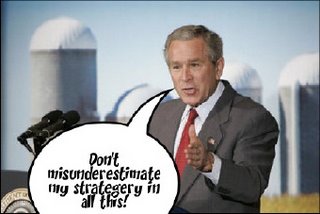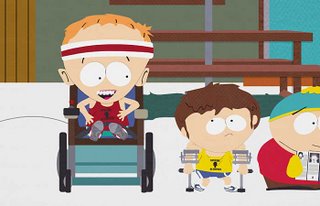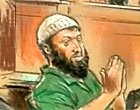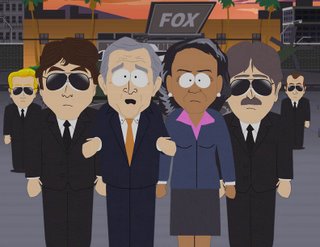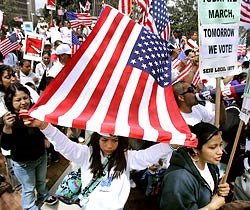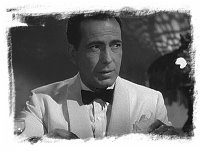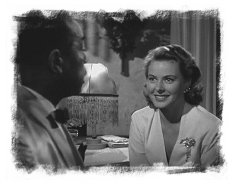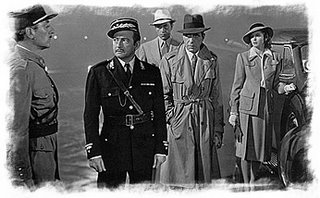"President Bystander"?!?!
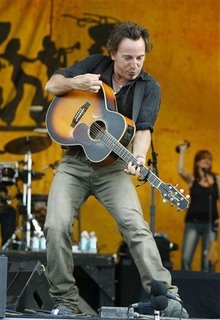
Bruce? Goddamnit, man.....
Apr 30, 10:29 PM (ET)
Springsteen Expresses New Orleans' Pain
By NEKESA MUMBI MOODY
NEW ORLEANS (AP) - New Jersey's favorite son was adopted by New Orleans on Sunday, as Bruce Springsteen - through speeches and song - vocalized the anger, frustration, pain and resilience of this hurricane-battered city at the annual Jazz & Heritage Festival.
Decrying what he called "criminal ineptitude" in Hurricane Katrina's wake, Springsteen jabbed at the political powers he deemed responsible for New Orleans' slow recovery.
Perhaps the most pointed moment came as he prepared to sing an old song that he had rewritten lyrics to for New Orleans. Noting that he visited the city's ninth ward, perhaps the most devastated area in the city, Springsteen said: "I saw sights I never thought I'd see in an American city," and added: "The criminal ineptitude makes you furious."
With that, he launched into a song titled "How Can A Poor Man Stand Such Times and Live?" and dedicated the song to "President Bystander." Its lyrics included the lines: "There's bodies floatin' on Canal and the levees gone to hell ... them who's got out of town, and them who ain't got left to drown, tell me, how can a poor man stand such times and live?"
Click onto the link and listen to the song. I think I'm addicted. But for the love of sensibilities, can someone just tell him to shut the frak up, and sing? Here's some background and lyrics to the song:
This song was written by Blind Alfred Reed and recorded a month after the crash of '29 that heralded the Great Depression. I first heard it on Ry Cooder's self - titled debut album (1970). To his arrangement we owe a debt. I kept the "doctor" first verse by Reed then wrote three others with a mind to the great trials the people of New Orleans have faced this year.
Here are the full lyrics:Well, the doctor comes 'round here with his face all bright
And he says "in a little while you'll be alright"
All he gives is a humbug pill, a dose of dope and a great big bill
Tell me, how can a poor man stand such times and live?
He says "me and my old school pals had some might high times down here
And what happened to you poor black folks, well it just ain't fair"
He took a look around gave a little pep talk, said "I'm with you" then he took a little walk
Tell me, how can a poor man stand such times and live?
There's bodies floatin' on Canal and the levees gone to Hell
Martha, get me my sixteen gauge and some dry shells
Them who's got got out of town
And them who ain't got left to drown
Tell me, how can a poor man stand such times and live?
I got family scattered from Texas all the way to Baltimore
And I ain't got no home in this world no more
Gonna be a judgment that's a fact, a righteous train rollin' down this track
Tell me, how can a poor man stand such times and live?
But it was Springsteen who may have provided the most poignant moments. Springsteen eschewed the big hits he's most identified with and instead performed classic folk and gospel songs epitomized by Pete Seeger that are featured on Springsteen's new album, "We Shall Overcome: The Seeger Sessions." Though they were decades old, many of the songs seemed particularly relevant to New Orleans struggles - "Mary Don't You Weep,""Jacob's Ladder," and particularly "My Oklahoma Home," which depicts a man's loss of his home and family after the devastating dust storms there in the 1930s.
I bought this album the day it came out, last Tuesday. I like it.
But perhaps no song was as bittersweet as "We Shall Overcome." As Springsteen somberly performed the tune, some people embraced each other, others dabbed their eyes. Another emotional moment came as he dedicated one of his old tunes to New Orleans: "My City in Ruins." Though he wrote it for his favorite town of Asbury Park, N.J., its lyrics resonated with the crowd: "Young men on the corner, like scattered leaves, the boarded up windows, the hustlers and thieves, while my brother's down on his knees. My city of ruins."
I remember when the 9/11 televised "Tribute to Heroes" opened with that number. It seemed to apply to New York City as much as anything, at the time. I love that song, as I love most all of Springsteen's songs.
It's great that he has such compassion for people. And a shame that he is a product of 60's liberal-think. I'm sure the people of New Orleans appreciate his support, regardless.
By the time he sang the chorus, "Come on rise up!" the audience spontaneously rose their hands in the air, symbolizing the pain and the hope of the city.
"The Rising" is a great album, if for nothing more than addressing the impact of 9/11, and the pain we all felt. "Into the Fire" and "You're Missing" are my favorites from it.
Not all of Springsteen's two-hour long set was downbeat; his huge band at times sounded like a boisterous New Orleans brass band, with its booming horn system, while he later injected some boogie and swing with another jazzy tune. But he ended his performance on a tender note, sweetly singing, "When The Saints Go Marching In."
He's got a wealth of compassion and has a good heart, but like many liberal do-gooders, he's got a poor man's understanding of the world. In music, he's Boss; but in politics, he ain't the boss o' me.
You can listen to him pontificate before launching into the Alfred Reed song, here.
Labels: Bruce Springsteen, Hollywood Liberals, New Orleans

